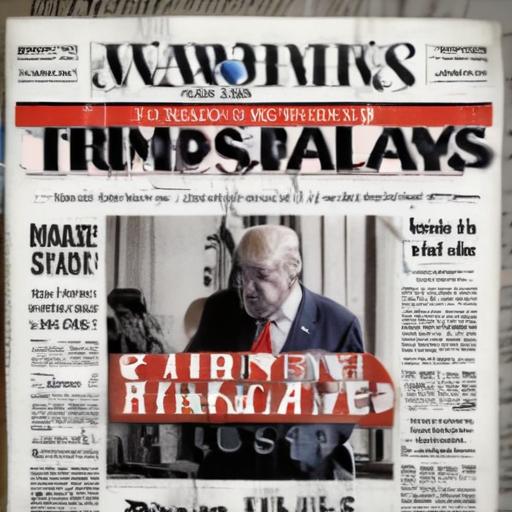Vice President J.D. Vance has criticized the Wall Street Journal for alleging that former President Donald Trump once wrote a controversial birthday card to the late Jeffrey Epstein, labeling these claims as “bogus” and calling into question the paper’s evidence. Vance expressed his doubts about the existence of both the supposedly incriminating book and the letter, emphasizing that the Wall Street Journal has not provided proof.
The article in question, which appeared last week, stated that Trump penned a birthday card for Epstein, featuring a doodle that the paper described in detail. This revelation comes amidst growing tensions between the Trump administration and the MAGA supporters, particularly in light of the Justice Department’s findings regarding Epstein’s case—conclusions that didn’t support some of the more sensational claims about a “client list” or blackmailing high-profile figures.
Vance accused the Wall Street Journal of seeking to undermine Trump’s character, suggesting that the publication is acting more like a political adversary than a news organization. He articulated concern that the media outlet would slowly release details to sensationalize the story and harm Trump’s image, framing the situation as an ongoing campaign against the former president.
The criticism of the Wall Street Journal further fuels the narrative by Trump and his supporters that mainstream media is unfairly targeting him. Trump has previously termed the allegations regarding Epstein as a “hoax” and initiated a significant libel lawsuit against the publication for $10 billion, asserting it has misrepresented facts.
As pressure mounts for more disclosures around the Epstein files, the public dialogue continues to swirl around accountability and the media’s role in political narratives, leaving the door open for ongoing developments in this contentious narrative.
This article encapsulates the current trajectory of public discourse surrounding the consequences of past associations and the impact of media reporting on political figures. The heated exchanges highlight the interplay of media influence and political strategy, which remains a critical aspect of contemporary governance and public perception.
